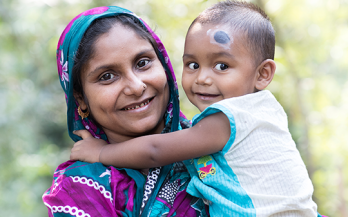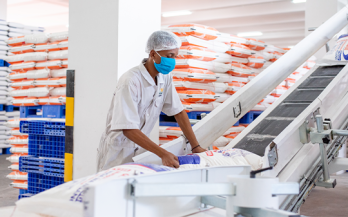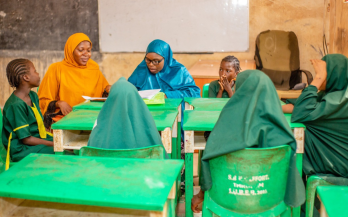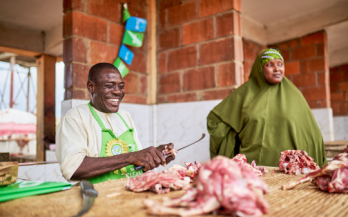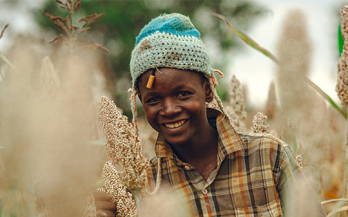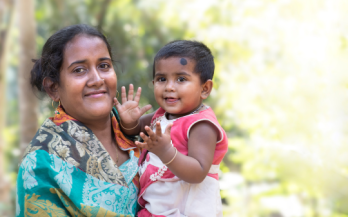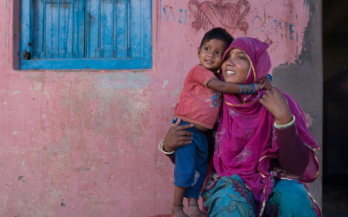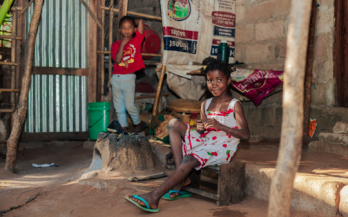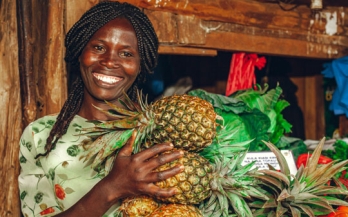Using OpenAI LLM (GPT-4o) and embedding models, GAIN developed a Retrieval-Augmented Generation (RAG)-based chatbot and connected it to a database of 28 publicly accessible food and nutrition policy documents from Bangladesh.
Food system transformation requires long-term commitment, but we live in a world of short-term political cycles and unforeseen crises that can deter momentum and reset policy priorities. Given that political economy dynamics can stymie efforts to implement food systems transformation agendas, GAIN has partnered with the International Food Policy Research Institute (IFPRI) to develop a Political Economy Decision Toolkit that identifies possible bottlenecks ex-ante and utilizes different sets of strategies to overcome them. The Toolkit was informed by discussions with GAIN’s policy advisors across Africa and Asia and revolves around six main domains that can be applied to either a narrow food policy issue, such as expanding school meals programmes, or to a broader topic, such as implementing national food system pathways.
Improving the nutrition impacts of social protection requires targeted improvements to programme designs. GAIN believes that good social protection design involves meaningfully leveraging vulnerable beneficiaries’ voices. Doing so can help administrators better understand how to overcome constraints and address beneficiaries’ specific nutritional needs. Beneficiaries have the advantage of proximity to the key issues: they understand their specific constraints and challenges better than any other system actors. While the need to incorporate beneficiaries’ perspectives, and the value of doing so, is well accepted by social protection administrators, they often face substantial hurdles to doing so in practice: logistical constraints, language barriers, differing value systems, power dynamics, and other factors make meaningful engagement with beneficiaries a significant challenge. GAIN has set out to identify ways to support administrators to overcome these constraints, particularly through human-centered design (HCD).
We expect to be eating peanuts, not extreme amounts of aflatoxins, and chicken but not E. coli. We expect that our salads are washed with clean water, and that the person who prepared the salad first washed their hands. We cannot, however, always assume the expected and thus need to be ready for the unexpected. Unexpected events can take the form of natural disasters, such as earthquakes or floods. They might also come from power cuts or amid sudden political change. Such events can disrupt food availability, accessibility and safety, leaving us exposed to increased levels of unsafe food.
All around the world, countries have recognised their food systems need to change, for the health of people and planet. From a national political perspective, this transformative journey hinges on robust government policy frameworks. Government can and must lead in changing the landscape to banish malnutrition and boost healthy diets. The Kenyan government’s ongoing review of the National Food and Nutrition Security Policy exemplifies its commitment to doing just that.
Every year, the voices and discourses on gender equality and women’s rights become loudest around International Women’s Day (March 8th). The rest of the year, women’s voices are seldom heard and considered, especially in corridors of power. Men and women have distinct needs, and there are intersecting vulnerabilities such as poverty levels, ethnic affiliation, age, and disabilities which further limit women’s voices. However, the voices of women must be systematically and consistently included in all conversations, at every stage, and on all topics, especially when it comes to policies.
In March, GAIN attended the 68th Commission on the Status of Women (CSW), an annual event held at the UN Headquarters in New York that brings together stakeholders from all over the world to discuss the state of gender equality and women’s empowerment, resulting in Agreed Conclusions.
“Be the voice of the children” - that was a key messages of a panel discussion held at the 2024 Sankalp Africa Summit on a sunny morning in Nairobi. It focused on how investors and those who work with them can adapt their approaches to better support children’s nutrition.
Among the five panellists — representing GAIN, the World Food Programme, UNICEF, Save the Children, and a local enterprise, Shalem Investment Limited — the motivation for doing this was clear. Children are the future, comprising nearly half of the African population at present and growing fast — expected to reach 1 billion by 2055. They thus have the potential to accelerate development not only in Africa but worldwide. But that potential is currently limited by malnutrition.
Some countries encourage increased consumption of nutrient-rich foods to reduce the burden of diet-related diseases such as diabetes as one of their health goals—but they also subsidise foods that can contribute to those diseases, such as sugar, edible oil, or refined grains.
Good nutrition has a hugely positive impact on health and other social goals, like educational attainment and work productivity – but the sector remains under-financed relative to its potential. How can we change this?
